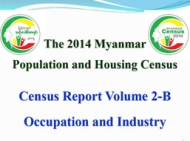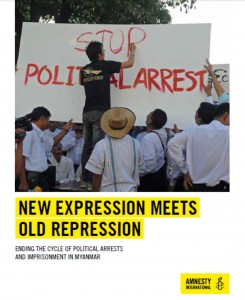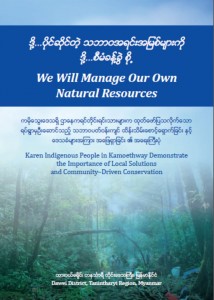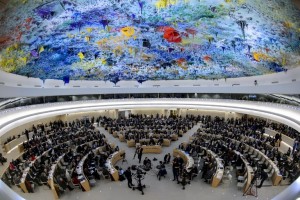Posts Tagged ‘Human Rights’ (685 found)
Presentation on The Union Report: Occupation and Industry
 The most recent census in Myanmar was undertaken in 2014. The census employed a de facto methodology where, with some exceptions, individuals were enumerated at the place they were residing on the 29th of March 2014 (Census Night). This census was undertaken after more than three decades; the last censuses were conducted in 1983 and 1973 […]
The most recent census in Myanmar was undertaken in 2014. The census employed a de facto methodology where, with some exceptions, individuals were enumerated at the place they were residing on the 29th of March 2014 (Census Night). This census was undertaken after more than three decades; the last censuses were conducted in 1983 and 1973 […]
FORUM-ASIA Welcomes the Adoption of the UN Human Rights Council Resolution on Burma/Myanmar
(Bangkok, Geneva, 25 March 2016) – The Asian Forum for Human Rights and Development (FORUM-ASIA) welcomes the adoption of a resolution on Burma/Myanmar at the 31st session of the United Nations Human rights Council yesterday […]
• • •Myanmar: Political imprisonment in numbers
Today, Amnesty International released the report New expression meets old repression. Here is a look at some of the key numbers behind the growing crackdown on freedom of expression in Myanmar […]
• • •Myanmar: New Government must Break Vicious Cycle of Repression and Political Arrests
Myanmar’s new government will take office with a historic opportunity to change course on human rights but must break away from the deeply repressive legal framework that for years has fuelled arbitrary arrests and repression, Amnesty International said in a new report today […]
• • •Myanmar: New expression meets old repression: Ending the cycle of political arrests and imprisonment in Myanmar
 This is the summary of the Amnesty International report which highlights the pattern of politically motivated arrest and imprisonment since the start of 2014. Since it came to power in March 2011, the government in Myanmar has embarked on a major transition from five decades of authoritarian military rule towards a more open political system […]
This is the summary of the Amnesty International report which highlights the pattern of politically motivated arrest and imprisonment since the start of 2014. Since it came to power in March 2011, the government in Myanmar has embarked on a major transition from five decades of authoritarian military rule towards a more open political system […]
Bottom-up, Community-driven Development Model Presents a Sustainable Future for Villagers and the Natural Environment in Tanintharyi Region
Rangoon – (24 March, 2016) – In a region bearing the brunt of top-down development and conservation policies and processes, local communities in Kamoethway River Valley, Tanintharyi Region have designed and are implementing their own, sustainable, locally-led development process, one that benefits both the natural environment and the indigenous people who have resided there for generations, Tenasserim River Indigenous People Network (TRIP-NET) outlined in a report launched today […]
• • •We Will Manage Our Own Natural Resources: Karen Indigenous People in Kamoethway Demonstrate the Importance of Local Solutions and Community–Driven Conservation
 This piece of community initiated action research reveals a number of lessons we can learn. The authors try to reflect the challenges of and opportunities for community based natural resources management in a seemingly forgotten Karen controlled area of southern Myanmar […]
This piece of community initiated action research reveals a number of lessons we can learn. The authors try to reflect the challenges of and opportunities for community based natural resources management in a seemingly forgotten Karen controlled area of southern Myanmar […]
UN Review Shows Lack of Progress Made by the Outgoing Government
Burma/Myanmar’s response to its second cycle Universal Periodic Review (UPR) at the United Nations Human Rights Council (the Council) reflects the lack of progress made by the outgoing government and the need for key human rights challenges to be addressed, representatives who attended the Council said today […]
• • •At United Nations Human Rights Council, Outgoing Government Defiant To the Very End

Last week on 15 March 2016, the same day Burma’s Parliament elected its President, the country also underwent a review by member states of the United Nations Human Rights Council following which a resolution will be made on how to move forward with the scrutiny and accountability of the human rights situation in the country […]
• • •Joint Statement on Targeting of Ta’ang Civilian Populations and Human Rights Violations by the Myanmar Tatmadaw
We strongly condemn and protest the targeting of Ta’ang civilian populations by the Myanmar Tatmadaw in its attacks, since February 2016, in the Ta’ang Region of Northern Shan State. The Myanmar Tatmadaw has sent in massive military forces, and this has resulted in gross human rights violations […]
• • •








 All posts
All posts